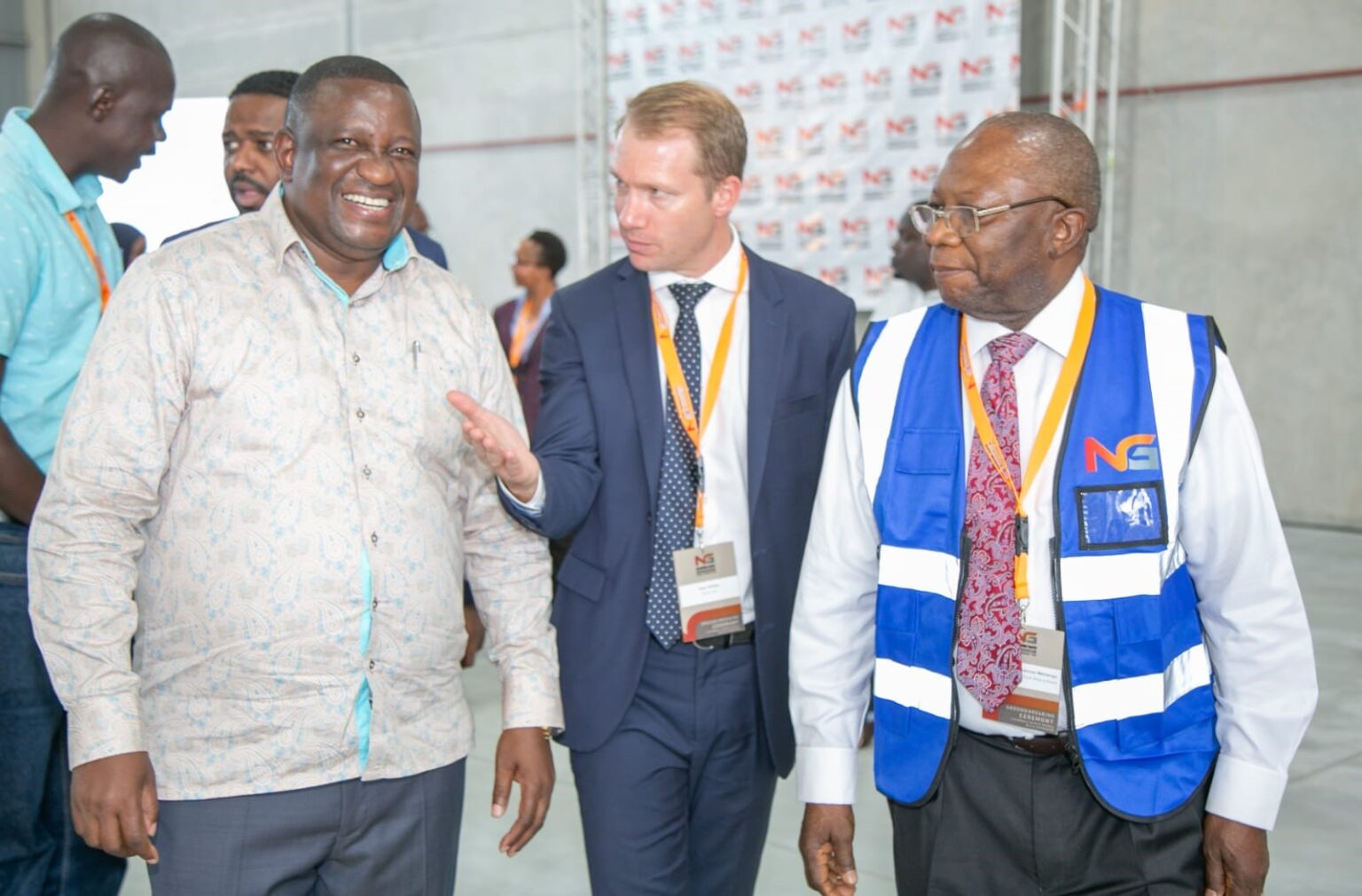- Companies within the Special Economic Zone (SEZ) benefit from reduced corporate tax rates, zero-rated VAT, lower withholding taxes, and preferential import duties.
- The business hub has successfully attracted 17 firms so far, and eight have already enjoyed the benefits of the SEZ framework.
- By 2040, Nairobi Gate envisions a facility that supports Kenya’s industry needs and serves as a model for SEZ operations in sub-Saharan Africa.
Nairobi Gate Industrial Park Special Economic Zone (SEZ) has announced the groundbreaking of its fifth phase, a $7 million expansion project in Kenya’s agro-processing industry.
Designed to support Kenya’s agro-processing potential, this initiative reflects Nairobi Gate‘s strategic commitment to nurturing local industries and empowering the country’s role in regional and global supply chains.
The development aims to create a modernized environment tailored for light manufacturing, offering critical infrastructure and streamlined operational benefits for businesses.
Scaling up agro-processing and light manufacturing
At the heart of this new phase is the addition of 130,000 square feet of modular warehouse units, each crafted to suit various businesses across sectors such as agro-processing, textiles, pharmaceuticals, and logistics.
With a modular design, these warehouses cater to small and large enterprises, local and international. Agro-processing, a vital pillar of Kenya’s economy, will particularly benefit from this investment as it looks to tap into a rapidly growing sector that demands efficient, modern facilities to enhance processing, storage, and distribution capabilities.
The expansion also aims to attract key players in third-party logistics, importers, and exporters who seek the advantages Nairobi Gate’s Customs-Controlled Area (CCA) offers.
By streamlining processes and creating efficient operations, it is positioned as a linchpin in transforming Kenya’s light manufacturing landscape, making it an appealing destination for businesses looking to establish or grow their footprint in East Africa.
SEZ incentives fueling growth
Nairobi Gate’s designation as a Special Economic Zone (SEZ) offers unique fiscal incentives that position it as an attractive hub for business. Companies within the SEZ benefit from reduced corporate tax rates, zero-rated VAT, lower withholding taxes, and preferential import duties, among other financial advantages. These incentives reduce operational costs, making it easier for businesses to scale up operations and reach new markets.
This tax-friendly environment is a driving force behind the park’s impressive occupancy rates. Phase 4, launched in November 2023, has reached a 90 per cent occupancy rate, demonstrating the demand for spaces that offer regulatory advantages and logistical convenience.
The business hub has attracted 17 firms so far, and eight have already benefited from the SEZ framework.
Read also: Realizing AfCFTA’s potential for Africa
Supporting Kenya’s Vision 2030 and AfCFTA goals
Beyond immediate economic gains, Nairobi Gate aligns its growth with Kenya’s Vision 2030 blueprint, which seeks to industrialize the country and elevate it into a middle-income economy.
The park’s contribution to the agro-processing industry also aligns with the African Continental Free Trade Area (AfCFTA) goals, which aim to create a single, unified market for goods and services across the continent.
As Kenya looks to become a more significant player in regional trade, having an SEZ such as this could amplify its strategic advantages, particularly due to its proximity to vital logistics hubs such as the Jomo Kenyatta International Airport (JKIA), the Inland Container Depot (ICD), and the Standard Gauge Railway (SGR).
These connections make Nairobi Gate a focal point for cross-border trade, strengthening Kenya’s position as a central hub for import and export operations in East Africa.
A sustainable investment for long-term economic impact
Developed by Impact North, a partnership between South African property group Improvon and private equity firm Actis, Nairobi Gate represents a long-term commitment to Kenya’s industrial growth.
The $7 million investment is part of an overarching $40 million commitment, with projections to reach $160 million by 2040. The phased development approach allows Nairobi Gate to expand sustainably, with each phase addressing the changing needs of the Kenyan and regional markets.
“Nairobi Gate has always believed in the potential of the Kenyan market,” says Dean Shillaw, Managing Director of Nairobi Gate Industrial Park. This sentiment reflects the deep-rooted commitment of Nairobi Gate’s backers to Kenya’s industrialization.
By 2040, Nairobi Gate envisions a facility that supports Kenya’s manufacturing and logistics needs and serves as a model for SEZ operations in sub-Saharan Africa.
Creating jobs and economic opportunities
Nairobi Gate’s investment is not just about buildings and infrastructure; it’s about creating job opportunities and stimulating local economies. With 434 permanent jobs already generated, the expansion of Nairobi Gate will likely add hundreds more as it attracts new businesses and industries into the park.
Each phase in Nairobi Gate’s development brings additional economic activity to the surrounding communities, fostering a symbiotic relationship between the industrial park and residents.
With increased demand for high-quality warehousing and logistical facilities, Nairobi Gate is shaping up to be a transformative player in Kenya’s manufacturing sector.
The influx of businesses in sectors such as agro-processing also has a ripple effect, driving demand for local produce and creating markets for farmers and suppliers across the country.
The future of agro-processing at Nairobi Gate
As the agro-processing industry expands, Nairobi Gate says it is committed to supporting sustainable, innovative solutions that meet industry needs. From processing facilities for locally sourced produce to cold-chain logistics that ensure product quality, Nairobi Gate’s infrastructure is designed to accommodate the full spectrum of agro-processing activities.
This capability is poised to make Nairobi Gate a key pillar for new and established businesses looking to scale up their operations in an increasingly crucial sector of Kenya’s economy.
With a focus on modern facilities, operational efficiencies, and strategic location, the SEZ appears positioned to play a pivotal role in Kenya’s agro-processing journey.
By providing the infrastructure, incentives, and connectivity that businesses need, the investment is poised to empower Kenya to harness its agricultural potential and turn it into a robust economic driver for the future.
